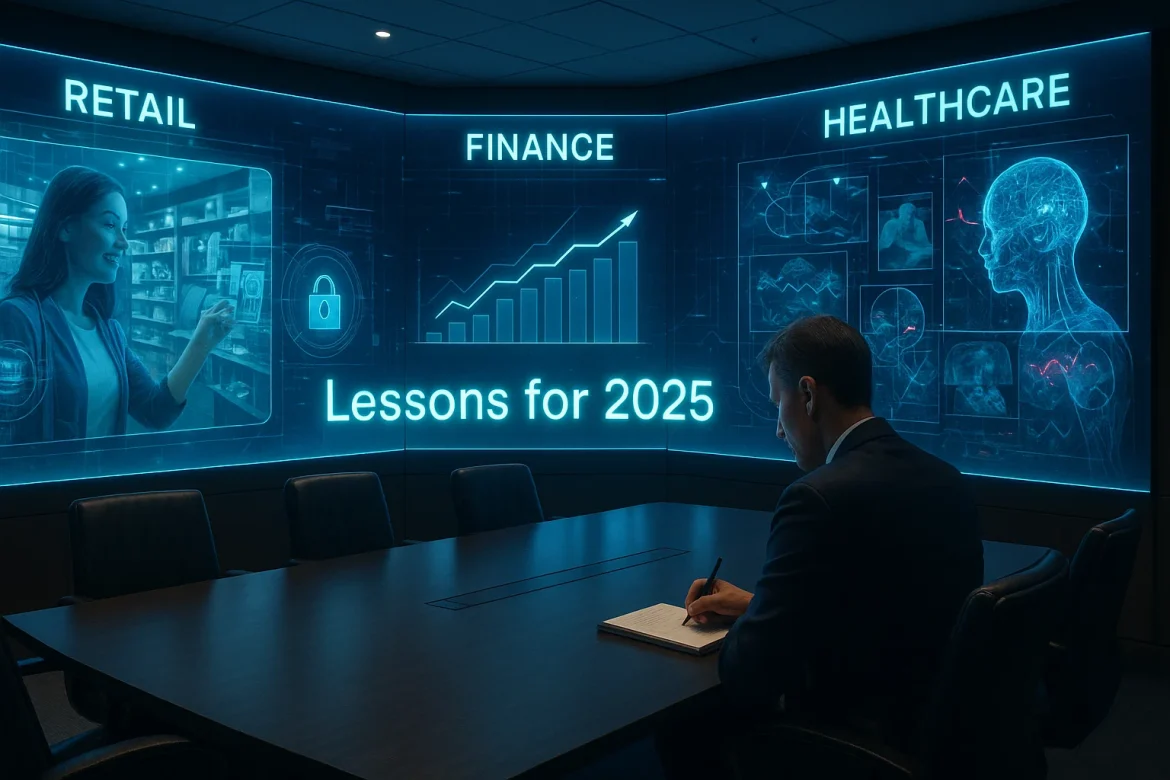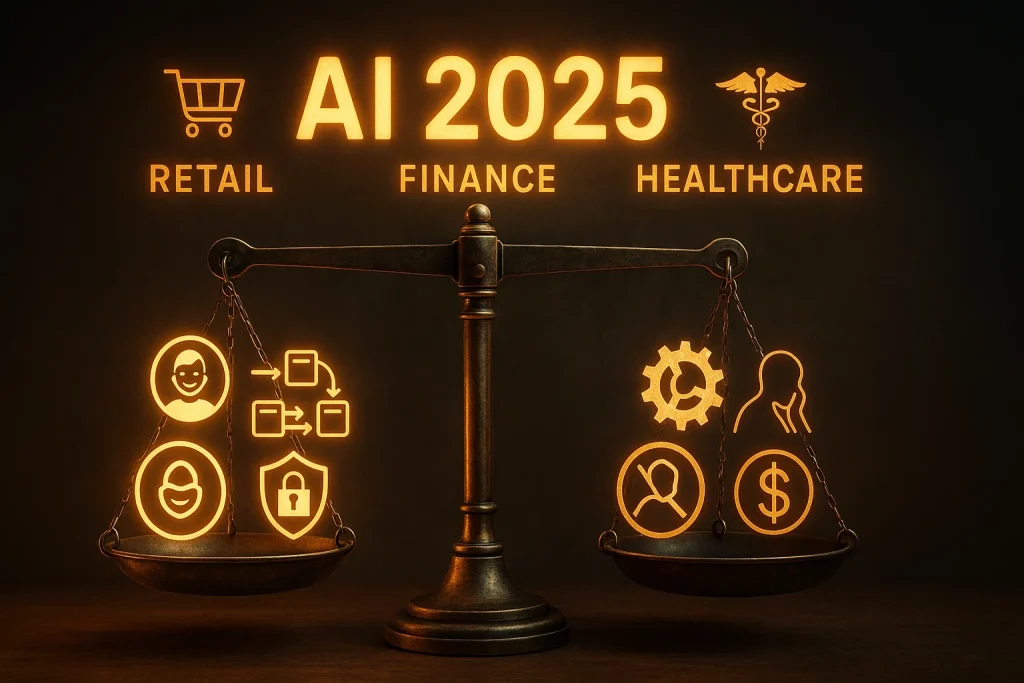Why Retail Is Winning the AI Race — And the Human Lessons Finance and Healthcare Must Learn
Artificial Intelligence is often described in numbers — budgets, adoption rates, ROI. But behind those numbers are people: the customers who want to be seen, the patients who want to be cared for, and the professionals who want tools they can trust.
A new Lenovo study, the CIO Playbook 2025, reveals how three industries in EMEA are navigating this delicate balance. Retail is quietly leading, with 96% of AI projects meeting or exceeding expectations. Finance moves cautiously but with discipline. Healthcare spends big, yet struggles to turn investment into real outcomes.
What becomes clear is that AI success is not about who spends the most, but who listens the best — to their people, their customers, and their purpose.
Retail: Quiet Confidence, Human Focus
Retailers are proving that small, thoughtful steps can deliver the biggest impact.
61% are still in pilot phases.
Budgets are growing steadily, not dramatically.
Yet nearly every deployment has succeeded.
Why? Because retail applies AI to things that matter in daily life: making shopping more personal, ensuring shelves are stocked, reducing waste, and creating smoother customer journeys.
Retail’s secret is not in chasing hype, but in listening to people — and using AI to make life just a little easier for them.
Finance: Discipline in the Face of Risk
In finance, the stakes are trust and security. A single misstep with AI could damage confidence built over decades. So it’s no surprise that:
Only 7% of organizations have adopted AI so far.
Just 38% of budgets go to generative AI — the lowest among industries.
Yet when banks and insurers do move, they move carefully, and with strong results: a third of their projects actually exceed expectations.
Finance teaches us a vital lesson: sometimes, restraint is wisdom. Moving slower can mean moving stronger, ensuring that innovation never undermines trust.
Healthcare: Big Dreams, Hard Lessons
Healthcare carries the heaviest responsibility: human lives. It’s no wonder spending on AI is soaring — with a projected 169% increase in 2025, the biggest of any industry.
But here, the gap between hope and reality is widest. Many healthcare AI projects fall short. Why? Because money alone doesn’t create expertise. Hospitals and providers need stronger strategies, better integration, and trusted partnerships.
Yet even in the struggle, there’s something profoundly human: a determination to try. The investment surge shows how deeply healthcare believes in AI’s potential to save lives and ease suffering. The challenge now is to turn that belief into reliable systems that doctors and patients can depend on.
The Human Lessons Across Industries
What unites these stories is not technology, but humanity.
-
Clarity beats cash → AI works when leaders know why they’re using it, not just how much they’re spending.
-
Pilot, learn, adapt → Testing carefully and learning from feedback is more powerful than rolling out massive, unfocused projects.
-
Partnerships matter → No industry — especially healthcare — should walk this journey alone. Expertise must be shared.
As Simone Larsson of Lenovo put it: “There’s no one-size-fits-all approach to AI. Every industry faces unique challenges and opportunities.”
Why It Matters for the Middle East
For the Middle East, these findings carry weight. Retail is a cultural heartbeat across the region. Finance is the foundation of trust in growing economies. Healthcare is a sacred responsibility.
The lesson is universal: AI is not just about technology. It’s about people. And success comes not from racing ahead blindly, but from aligning every algorithm with real human needs.
Closing Reflection
Retail may be winning the AI race today. Finance proves that trust and patience are strengths. Healthcare reminds us that even when we stumble, the effort to innovate in service of humanity is worth it.
AI will not replace people — but it will reflect the values of those who build and guide it. And that may be the most important lesson of all.
FAQ
Q1: Why is retail ahead in AI?
Because it listens to customers and applies AI where it improves daily life — personalization, logistics, efficiency.
Q2: Why is finance cautious?
Because its foundation is trust. It moves slower, but with precision, ensuring AI strengthens security instead of risking it.
Q3: Why is healthcare struggling?
Because resources aren’t the same as readiness. Healthcare needs expertise, integration, and strong partnerships to turn ambition into impact.
Q4: What’s the core lesson for leaders?
AI success depends less on budget size, more on clarity of purpose, disciplined testing, and human alignment.
Q5: Why does this matter for the Middle East?
Because these industries — retail, finance, healthcare — are pillars of regional growth. Their approach to AI will directly shape economies and societies.



